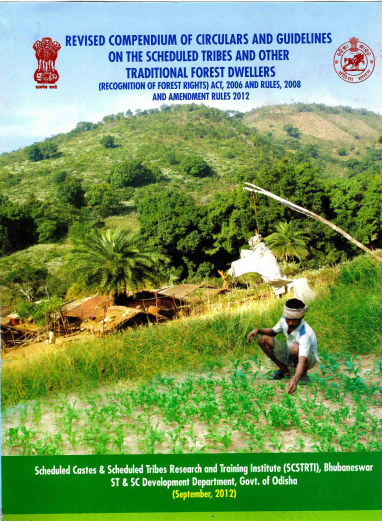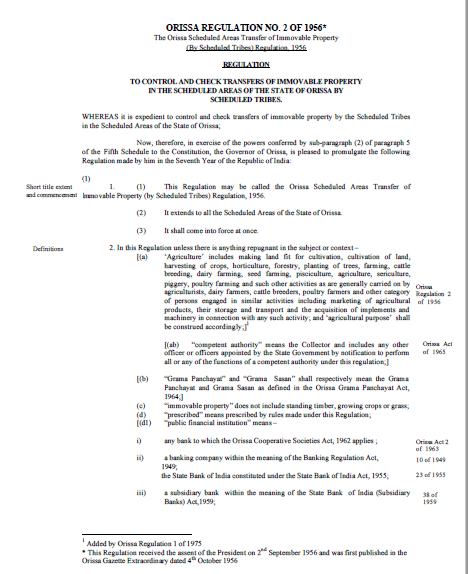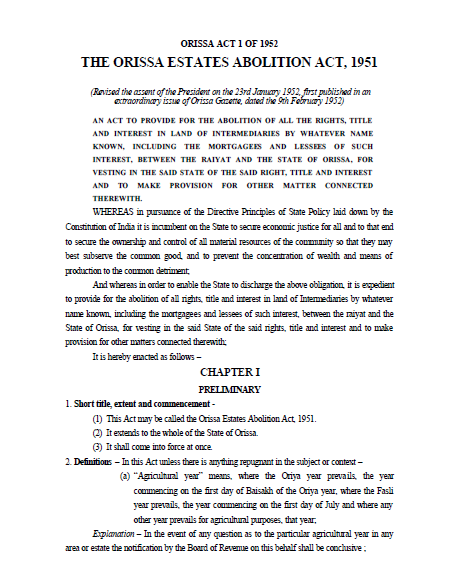
Topics and Regions
Land as a discipline in academics and in policy and development discourses, has remained comparatively under-developed. Land administration continues to be isolated and sectorally divided, over-bureaucratized and often-politicized. Contrary to the need, land governance portrays legal complexity and institutional inadequacy and exclusiveness. Contested landscapes of land governance in India calls for partnerships and innovations to make development more inclusive and prosperity shared. Participation of land-actors and users, especially communities, civil society and private sector are critical, to make land governance equitable and sustainable. Centre for Land Governance attempts to bridge information gaps, create evidence and build platforms for connection and conversations among land-stakeholders, through knowledge engagements around action and policy research, evidence-based advocacy, communication and capacity building
Details
Location
Contributions
Displaying 201 - 210 of 251Land ownership, administration & status of forests of Khasi Hills Autonomous District Council of Meghalaya
The article published in NeBIO-An International Journal of Environment and Biodiversity highlights the complicated classifications of land ownership in Khasi Hills viz., private land, group or clan land, community land and government land.
Land and Governance under Fifth Scheduled Areas-An Overview of the law
This book made an attempt to bring together various legislative protections available to the tribals communities pertaining to the land and governance in the scheduled areas and the role of different institutions to achieve the goals enshrined in the Constitution. It examined the Fifth Schedule of the Constitution and its various provisions and special arrangements made for areas inhabited by Scheduled Tribes and the law relating to local self governance in these areas, primarily through village panchayat-an institution of local self governance.
The Odisha Special Survey and Settlement Act, 2012
An Act to deal with undertaking survey and settlement operations in the State by adopting modern technology to minimize the time span without compromising the quality, transparency and grievance redressal and related matters.
THE HINDU SUCCESSION ACT, 1956
A legislation to amend and codify the law relating to intestate succession among Hindus. It deal with issues related to coparcenary property, interest in the property of a tarwad, tavazhi, kutumba, kavaru or illom, rules of succession in the case of males, succession among heirs, distribution of property among heirs in class I of the Schedule.
The Hindu Succession (Amendment) Act, 2005
This Hindu Succession Act Amendment made in 2005 was to grant, among others, rights to women to inherit agricultural land of the parents and husband. Under this amendment the daughters, including married daughters, are coparceners in joint family property, with the same birth right as sons, to share, claim partition, and (by presumption) to become karta (managers), while also sharing the liabilities. This would be applicable for Hindus, Sikhs, Buddhists and Jains religious communities of India.
Statistical Profile Of Scheduled Tribes In India 2013
The statistical profile is a comprehensive statistical profile of Scheduled Tribes (otherwise called indigenous people), produced and published by Ministry of Tribal Affairs, Government of India. The profile presents information relating to some key characteristics pertaining to STs like trend analysis of demographic profile, education, health, and employment status along with their proportions having basic amenities like, drinking water, electricity, and bank account etc.
Revised Compendium on Circulars & Guidelines on the Scheduled Tribes and Other Traditional Forest Dwellers (Recognition of Forest Rights) Act, 2006 & Rules, 2008 and Amendment Rules, 2012
The Ministry of Tribal Affairs, Government of India enacted the Scheduled Tribes and Other Traditional Forest Dwellers (Recognition of Forest Rights) Act, 2006, a tribal friendly legislation to address the historical injustice and critical issues, pertaining to the forest rights deprivation of the Forest Dwellers. To facilitate its implementation, FRA Rules, 2008 was framed and then made amendment to the Rules in 2012. However, several constraining factors and issues came to the notice in the implementation process of the Act in letter and spirit.
The Orissa Government Land Settlement Act, 1962
An Act to deal with the settlement of Government Land in the State of Odisha. It is enacted as a general legislation formulating a set of uniform principles regarding lease of Government waste lands with the primary objective of governing the settlement of waste lands in a planned manner uniformly throughout the State.
The Orissa Scheduled Areas Transfer of Immovable Property (By Scheduled Tribes) Regulation, 1956
The Governor of Orissa in exercise of the powers conferred under sub-paragraph (2) of paragraph 5 of the Fifth Schedule of the Constitution of India has promulgated this regulation to Control and Check Transfers of Immovable Property in the Scheduled Areas of the State of Odisha by Scheduled Tribes (ST). Any transfer of immovable property by a member of a ST to non-STs, except by way of mortgage in any public financial institution for securing a loan granted by such institution for any agricultural purpose, shall be absolutely null and void.
THE ORISSA ESTATES ABOLITION ACT, 1951
An Act to provide for the abolition of all the rights, title and interest in land of intermediaries by whatever name known, including the mortgagees and lessees of such interest, between the raiyat and the State of Odisha, for vesting in the said State of the said right, title and interest and to make provision for other matter connected therewith.










